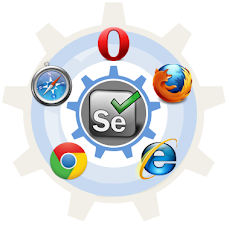Jobs and Career in AI and Machine Learning: Unveiling the Future of Work
The AI and Machine Learning Revolution
The rise of Artificial Intelligence (AI) and Machine Learning (ML) marks a pivotal moment in the history of technology and its impact on the job market. These fields have evolved from theoretical concepts to practical tools that are transforming industries worldwide. As AI and ML continue to mature, the demand for skilled professionals is skyrocketing, creating an array of exciting and dynamic career opportunities.
Job Roles in AI and Machine Learning
1. Machine Learning Engineer
Role: Machine Learning Engineers are the architects behind ML models and systems. They are responsible for selecting the right algorithms, training models, and optimizing them for performance.
Skills: Proficiency in programming languages like Python, familiarity with ML libraries (e.g., TensorFlow, Scikit-Learn), and expertise in data preprocessing and model evaluation are crucial. Strong problem-solving skills are essential for this role.
2. Data Scientist
Role: Data Scientists are data detectives. They dive into massive datasets, apply statistical analysis and ML techniques, and unearth valuable insights to drive informed business decisions.
Skills: Data Scientists need a strong foundation in statistics, data visualization skills, and the ability to use tools like Python, R, and data manipulation libraries. Domain knowledge is often crucial in this role.
3. AI Research Scientist
Role: AI Research Scientists are at the forefront of AI innovation. They delve into cutting-edge research, explore novel algorithms, and push the boundaries of what AI can achieve.
Skills: These professionals require deep expertise in AI, including areas such as Natural Language Processing (NLP), computer vision, and reinforcement learning. Research experience and a strong publication record are often expected.
4. AI/ML Solutions Architect
Role: Solutions Architects bridge the gap between AI technology and practical applications. They work closely with stakeholders to understand business needs, design AI solutions, and oversee their implementation.
Skills: A combination of technical and communication skills is vital. Knowledge of cloud computing platforms, AI technologies, and the ability to align AI strategies with business goals are key strengths.
5. AI Ethicist
Role: AI Ethicists ensure that AI systems are developed and used responsibly, addressing ethical and societal implications. They focus on fairness, bias mitigation, and privacy concerns.
Skills: AI Ethicists need expertise in AI ethics, a strong ethical framework, and critical thinking abilities. They must navigate complex ethical dilemmas and provide guidance on responsible AI development.
6. AI Product Manager
Role: AI Product Managers drive the development of AI-powered products. They define product roadmaps, collaborate with engineering teams, and ensure alignment with business objectives.
Skills: This role combines product management experience with technical knowledge of AI. Market research skills and a deep understanding of user needs are essential.
7. AI/Machine Learning Consultant
Role: Consultants provide expert guidance to organizations seeking to leverage AI and ML. They assess business requirements, recommend strategies, and guide the implementation of AI solutions.
Skills: Strong problem-solving abilities and industry knowledge are critical. Effective communication skills are essential for conveying complex AI concepts to non-technical stakeholders.
8. AI Software Developer
Role: AI Software Developers build and maintain AI applications and systems. They write code for AI algorithms, integrate AI into software, and optimize performance.
Skills: Proficiency in programming languages like Python, along with familiarity with AI libraries and software development expertise, is necessary. Attention to detail is crucial to ensure the reliability of AI software.
Industries and Applications
The versatility of AI and ML spans across numerous industries, each with its unique applications:
1. Healthcare
AI is used for disease diagnosis, predicting patient outcomes, drug discovery, personalized treatment plans, and medical image analysis. This leads to more accurate diagnoses and improved patient care.
2. Finance
In the financial sector, AI is applied for fraud detection, algorithmic trading, credit risk assessment, and customer service chatbots. It enhances security and efficiency in financial transactions.
3. Retail
Retail benefits from AI-powered recommendation systems, inventory management, demand forecasting, and cashierless stores. These innovations offer a personalized shopping experience and optimize inventory.
4. Automotive
Self-driving cars, advanced driver-assistance systems (ADAS), and predictive maintenance are driven by AI. This leads to safer and more efficient transportation.
5. E-commerce
AI enhances user experience with personalized recommendations, chatbots for customer support, and supply chain optimization. It streamlines online shopping and logistics.
6. Manufacturing
Manufacturing industries employ AI for predictive maintenance, quality control, and supply chain optimization. This reduces downtime and improves product quality.
7. Natural Language Processing (NLP)
NLP applications include customer support chatbots, sentiment analysis of social media data, and language translation services. These technologies bridge language barriers and improve communication.
8. Computer Vision
Computer vision is integral to facial recognition, autonomous vehicles, and image analysis in medical imaging. It revolutionizes the way we interpret visual data.
Skills and Education
Building a successful career in AI and ML requires a strong educational foundation and continuous learning:
- Education: Many AI professionals start with a bachelor's degree in computer science, mathematics, or a related field. Advanced degrees (master's or Ph.D.) can provide specialized knowledge and research opportunities.
- Programming: Proficiency in programming languages like Python, R, and Java is essential. Knowledge of AI libraries such as TensorFlow and PyTorch is advantageous.
- Mathematics and Statistics: A deep understanding of linear algebra, calculus, probability, and statistics forms the mathematical backbone of AI and ML.
- Machine Learning: Mastering ML algorithms, techniques, and frameworks is essential. Online courses, tutorials, and hands-on projects can help build expertise.
- Projects: Building a portfolio of AI and ML projects demonstrates practical skills to potential employers. Real-world projects showcase your ability to apply theoretical knowledge.
Continuous Learning: The field of AI and ML is constantly evolving. Staying updated with the latest advancements is crucial for career growth. This can be achieved through:
- Conferences and Workshops: Attending AI and ML conferences like NeurIPS, ICML, and CVPR provides insights into cutting-edge research and networking opportunities.
- Online Courses: Platforms like Coursera, edX, and Udacity offer specialized courses on AI and ML topics. Well-known courses include Andrew Ng's "Machine Learning" and "Deep Learning Specialization."
- Open-Source Projects: Contributing to open-source AI projects not only hones your skills but also showcases your expertise to the community.
- Books and Research Papers: Reading books like "Deep Learning" by Ian Goodfellow, Yoshua Bengio, and Aaron Courville, as well as research papers from top AI conferences, can deepen your understanding.
- Certifications: Consider pursuing certifications in AI/ML from reputable organizations or institutions. Certifications can validate your knowledge and skills to potential employers
Future Outlook
The future of careers in AI and ML appears exceptionally promising. Here are some key points to consider:
- Rapid Growth: The job market for AI and ML professionals is expected to continue expanding at a rapid pace. The demand for these skills far outstrips the current supply.
- Competitive Salaries: Salaries in the AI and ML field are highly competitive. Professionals with expertise in AI can command some of the highest salaries in the tech industry.
- Job Satisfaction: AI and ML roles are intellectually stimulating and offer the opportunity to work on cutting-edge technology. Job satisfaction tends to be high among AI professionals.
- Challenges and Ethical Considerations: As AI becomes more integrated into society, ethical concerns, including bias, fairness, and privacy, will need to be addressed. Professionals with expertise in AI ethics will be in high demand.
- Diverse Applications: AI and ML are versatile and are applied across a wide range of industries. This means professionals can choose to work in fields they are passionate about, whether it's healthcare, finance, or automotive.
- Continuous Learning: Given the rapid pace of advancements in AI and ML, professionals must commit to continuous learning to stay relevant and competitive in the job market.
- Ethical Responsibility: AI professionals will play a critical role in ensuring that AI technologies are developed and used ethically and responsibly. Ethical considerations are becoming integral to AI development.
In conclusion, careers in AI and machine learning offer an exciting and dynamic future. Whether you aspire to be a machine learning engineer, a data scientist, or an AI researcher, the field is full of opportunities for those willing to invest in their education and skills. As AI continues to shape the world, professionals in this domain will remain at the forefront of technological innovation and its societal impact.









.png)










Comments
Post a Comment